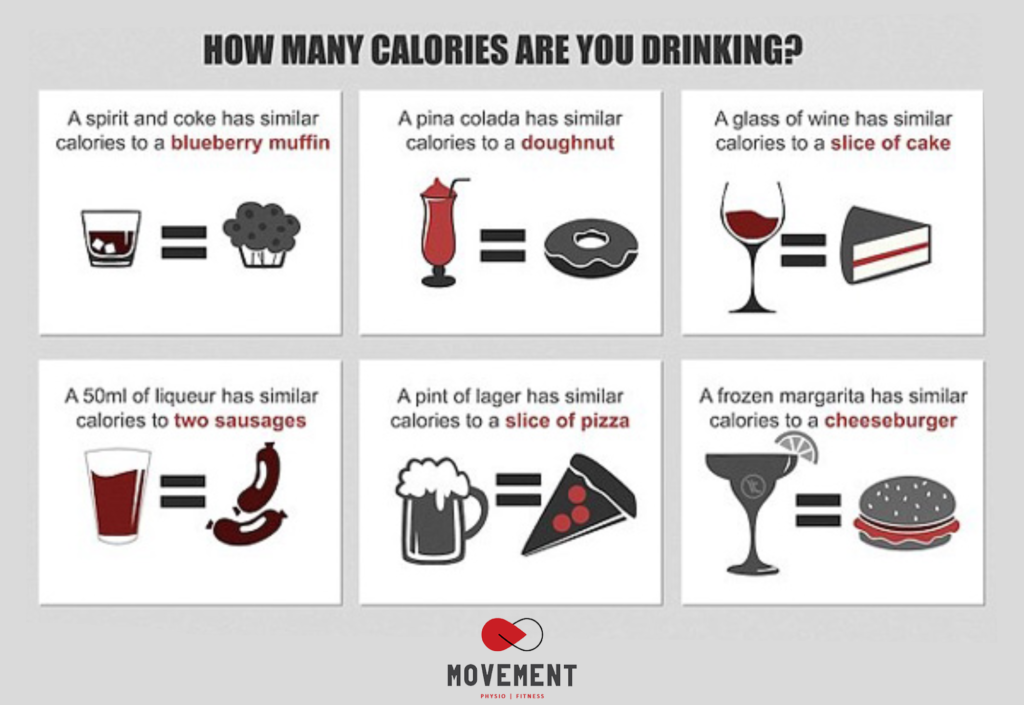Understanding alcohol’s role in weight and health
Alcohol consumption, a deeply ingrained social habit across cultures, often underestimates its effects on body weight. However, understanding these effects is crucial for effective weight management. While enjoying a drink occasionally is part of many social norms, the caloric impact and the biochemical effects of alcohol on the body can complicate efforts to manage weight effectively. By being aware of these effects, you can make informed choices about your alcohol consumption, empowering you in your weight management journey.

1. Caloric content and empty calories: Alcohol provides substantial calories without essential nutrients. For example, ethanol has a caloric value of approximately seven calories per gram, almost as high as fat. A standard drink, whether beer, wine, or spirits, typically contains anywhere from 100 to 300 calories, depending mainly on the type and the serving size. These calories are considered ’empty’ because, unlike food, alcohol provides no nutritional benefits such as vitamins or minerals.
2. Metabolic disruption caused by alcohol: Alcohol metabolism has a priority in the digestive system. The presence of alcohol diverts the liver’s attention from processing fats and carbohydrates to eliminating alcohol from the bloodstream. This shift can lead to increased fat storage, particularly visceral fat around the abdominal area, linked to metabolic disturbances.
3. Liver health and alcohol: Chronic alcohol consumption can lead to alcoholic liver disease, which progresses from fatty liver to hepatitis and, potentially, to cirrhosis. The liver’s compromised ability to handle fats results in accumulation, affecting liver function and disrupting overall metabolic stability, increasing the risk of obesity and diabetes.
4. Impact on hormones and weight regulation: Alcohol affects several hormonal pathways:
- Insulin Sensitivity: Alcohol can alter the body’s response to insulin, potentially leading to higher blood sugar levels and more excellent fat storage.
- Testosterone: In men, excessive alcohol intake can reduce testosterone levels, which is crucial for muscle maintenance and fat metabolism.
- Cortisol: Alcohol increases cortisol production, a hormone that promotes fat storage, particularly in the abdominal region.
- Leptin: Alcohol may interfere with leptin, a hormone regulating hunger and energy balance, leading to increased appetite and weight gain.
5. Appetite and dietary choices: Alcohol consumption can increase appetite and lower inhibitions, leading to poor dietary choices. High-calorie, greasy, or sugary foods become more appealing when under the influence of alcohol, compounding the caloric surplus and nutritional deficiencies.
6. Sleep and recovery: While alcohol might initially promote sleepiness, it severely disrupts the sleep architecture, particularly the REM cycle. Poor sleep quality affects cognitive function, mood, and hormonal balance, further complicating weight management.
Strategies for responsible alcohol consumption in a weight management plan
- Choose lower-calorie options: Spirits mixed with zero-calorie beverages, light beers, and dry wines are better choices than sugary cocktails or heavy beers.
- Control consumption: Setting a limit before beginning to drink can help keep your intake in check. Monitoring and moderating your drinking can prevent many of the negative health impacts associated with alcohol.
- Hydration: Drinking water before, during, and after alcohol consumption helps to maintain hydration and reduce overall alcohol intake.
- Complement with healthy habits: Engage in regular physical activity and maintain a balanced diet to offset some of the caloric inputs and metabolic impacts of alcohol.

Conclusion: Navigating alcohol in your diet
Incorporating alcohol into a healthy lifestyle requires understanding its broad and nuanced effects on the body by making informed choices about how much to drink, what to drink, and when you can enjoy social events without compromising your health goals. Balancing alcohol intake with healthy eating habits and regular physical activity is essential for long-term wellness and effective weight management. By following these strategies, you can feel equipped and prepared to navigate alcohol in your diet.
